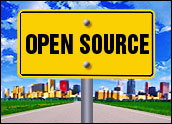
Massachusetts’ embrace of open technology, open standards and open source software was simply routine strategic planning, the way Tim Vaverchack tells it. However, the state’s stance to strongly consider alternatives to proprietary solutions — such as the Open Document Format — has fueled one of the biggest technology firestorms in government IT history.
The controversy around Massachusetts and ODF, an open standards-based computer document alternative to Microsoft Office, resulted in the resignation of the state’s former chief information officer. It has also triggered a tremendous amount of scrutiny — not only over Massachusetts’ decision, but also over the adoption of open standards and open source by other states and governments, including foreign nations.
Vaverchack, manager of shared services for Massachusetts’ information technology division, actually recognized the ODF furor, including it under the heading “firestorm of controversy” in his slide presentation at last week’s Government Open Source Conference (GOSCON) in Portland, Ore.
His point, though, was that the plan for adoption of open standards was in place before the tenure of the state’s former CIO — who became a lightning rod in the ensuing storm — and that its implementation is continuing today.
“Our main focus is to bring in as many open source products as we can,” Vaverchack said of his shared services division, “and also [to promote] an open source mindset.”
Long Path
Vaverchack recounted a history of the state’s open technology planning — which was not necessarily focused on ODF but was quickly tested when Microsoft and others resisted the standard. Although the state’s conversion to ODF has not yet taken place, the intention to adopt open standards and open source software dates back to 2003, he noted.
Despite resistance, Massachusetts’ move to ODF and other open standards and technologies has continued. Early this year, it won more support when Gov. Mitt Romney named Louis Gutierrez as the state’s CIO.
Microsoft recently has indicated a general willingness to support ODF, but it is unclear to what extent Redmond actually will embrace the open standard.
More Open
Though the ODF controversy was the main reason for Vaverchack’s appearance at GOSCON, he outlined other projects underway in the Bay State that demonstrate its overall commitment to open standards and open source software.
For example, Massachusetts’ human resources division needed a new job posting system, but the proposals the agency received from vendors were too pricey, Vaverchack explained. State officials then looked at some open source software options, considered development costs, and went ahead with their own fork of an open source solution that soon will be launched.
“We went out, presented the open source options, and looked at how much it would cost us to develop it,” Vaverchack said.
Other open source projects underway in the state include a docket tracking system that may be more broadly applicable, and implementation of the Joomla open source content management system (CMS).
“There’s a lot of appeal in Massachusetts now for some of these open source solutions,” Vaverchack said.
Code Questions
Reiterating the theme of taking an open source approach to IT planning, Vaverchack said that Massachusetts is looking to align its various agencies on potential common problems that may be best solved through collaboration.
The actual code from the state’s job posting application, for instance, will be open and likely available on an open source repository — but that also brought up another issue.
“That’s a big question,” he said. “What do we do with that code?”
Prime Time
Some conference participants questioned Vanderchack about how Massachusetts came to take a position on the front line in the fight for open standards and open technology. The state’s experience is of particular interest to a number of governments that are watching the ODF saga intently.
Nearly all GOSCON participants seemed aware of the potential power of open standards, open source software and a collaborative approach, but there was a bit of skepticism from a few, such as Steve LiaBraaten, a systems architect for Oregon’s department of human services, who cited support issues and wondered whether open source was really “ready for prime time.”
Still, the overall attitude at GOSCON was not one of questioning whether open source would make its way into government IT, but rather recognition of its impact coupled with the desire to harness its power.
“We all know open source is going to come into state agencies,” said Oregon Department of Justice General Counsel Jacob Carroll. “The question is, how do we manage it?”

















































